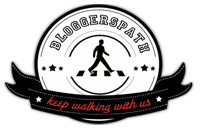If you’re a new blogger, one of your first tasks—before you even work on establishing a following—is to set up your security settings. It’s a process that’s often skipped because impatient bloggers impatient just want to get on to the fun part of blogging and other bloggers don’t realize the extent of the security hazards they face. But if you get your security settings right from the start, you won’t have to do as much down the road. Here are some common security problems and their solutions:
Problem One: Spam
Fail to take the necessary precautions and you could find yourself on the receiving end of thousands of spammy comments every day. Not only will these likely annoy you, but a lot of times they’ll bury valid, relevant comments from your blog readers, and they can really make your blog look unprofessional.
Solution: Comment Moderation and Plug-Ins
Rather than letting any and all comments go on your site, adjust your settings so that you are a moderator and can review comments before they go live and/or delete comments posted to your site. Also look into plug-ins or extensions to your site that will moderate comments for you. For example, if you’re using WordPress, Akismet will catch comment spam once you’ve enabled the plug-in.
Problem Two: Domain Hijacking
You’ve chosen your own domain name, and maybe you’ve even bought it. But a hacker can steal that domain name right out from under you. They might do this to create a mirror site phishing attack, or they might just do this for kicks because they know this will annoy you. Either way, your blog may suddenly cease to exist or cease to exist for your purposes.
Solution: Communication with Your Domain Host
Unfortunately, there’s not much more that you can do about domain hijacking except to check back often to see what’s going on with your site and to keep in regular contact with your domain host. The good news is that major CMS systems (think WordPress, Drupal, Joomla, etc.) and domain hosting services are working to protect you, but they won’t necessarily be able to help you if your site is hijacked.
Problem Three: Account Hacking
The last thing you want is for your account to be taken over by hackers who then can change your settings, create their own posts, delete former posts or really do whatever they want with your account. From bots that are allowed unlimited tries to get into your account to unsafe internet practices, you’ll want to make sure that you don’t accidentally allow someone to get their hands on your login details.
Solution: Create a Strong Login and Protect It
The first step is to create a strong login. Get rid of that default “Admin” username, and come up with a complex password that you’ll remember (or download a password manager). Then make sure your account is set to limit the number of login attempts allowed. You may need to use separate security plug-ins to do this. Then install a Virtual Private Network (VPN), so that all communication between your computer and the site you’re connecting to—things such as that newly-created strong login combination—is encrypted and can’t be easily snagged by hackers. An added bonus is that VPNs can help you circumvent geo-restrictions so you can access sites such as Netflix and Hulu overseas.
Problem Four: Malicious Themes or Plug-Ins
The customization options for your blog are really unlimited, whether it comes to choosing between themes for the appearance or installing plug-ins or extensions to make sure that you can post exactly what you want to post. But themes, plug-ins and anything else that you’re installing in your blog could include bits of code that allow the developer to spy on you, steal important information from your readers, infect your computer or those of your readers or more.
Solution: Common Sense and Security Plug-Ins
When you’re choosing your themes and plug-ins, the first thing to do is to use a little common sense and make sure you’re choosing ones that have plenty of other downloads, plus positive reviews and ratings. There are also plenty of security plug-ins (such as these for WordPress) that are meant to check through your themes and other plug-ins to find any unnecessary or malicious code.
Bloggers, have you encountered these or any other problems? What other security tips can you share with new bloggers? Tell us below!




